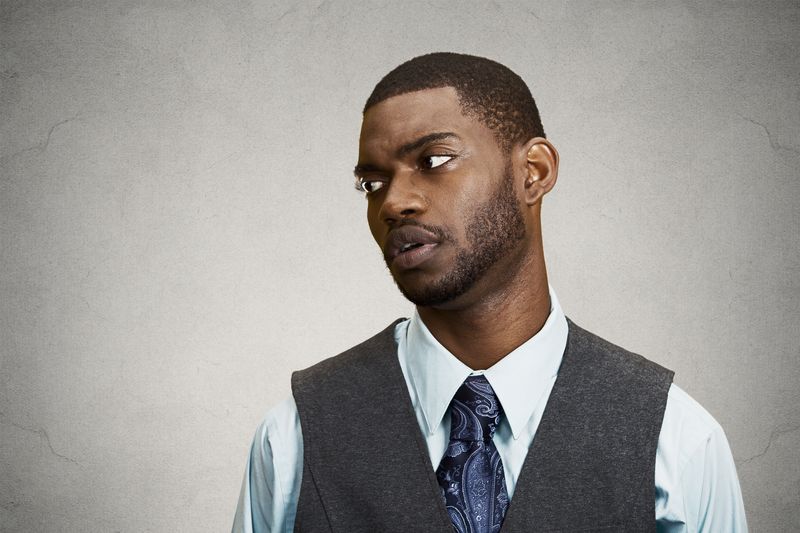10 Clear Signs a Person Doesn’t Like You (Even If They Pretend To)

Recognizing the subtle cues that someone may not genuinely like you can be challenging, especially when they pretend otherwise. Human interactions are complex, and people often mask their true feelings with polite behavior. However, non-verbal signs and communication patterns can reveal more than words. Understanding these signs can help you navigate social dynamics more effectively. By paying attention to body language, tone, and engagement levels, you can discern the authenticity of someone’s demeanor. Here are ten clear indicators that someone might not like you, even if they act friendly on the surface. These signs can guide you in understanding and managing your relationships better.
1. Their Body Language Feels Closed Off

Arms crossed tightly and subtle shifts away can speak volumes. Body language often betrays a person’s true feelings before their words do. When someone genuinely enjoys your company, their posture is open and welcoming.
In contrast, a closed-off stance might indicate discomfort or disinterest. Even forced smiles lack warmth, appearing tight and fleeting.
If they avoid facing you directly during conversations, the physical distance mirrors emotional detachment. These clues, though subtle, can suggest underlying feelings of dislike or indifference.
2. They Avoid Eye Contact or Give You Blank Stares

Eyes can reveal what words conceal. Avoiding eye contact often signifies discomfort or disinterest in the conversation. While some people may overcompensate with politeness, their lack of meaningful eye contact is telling.
A detached gaze suggests they are physically present but emotionally elsewhere. If eye contact feels forced or absent, it might be a clue they’re not invested in the interaction.
This behavior can indicate they are masking their true feelings, using politeness as a shield against confrontation or deeper engagement.
3. Their Responses Are Short or Delayed

Communication nuances can reveal much. When a person consistently responds with one-word answers or displays vague disinterest, it indicates a lack of engagement.
Delayed responses, especially when not typical for them, can signal reluctance to converse. It might mean they are pondering how little they can respond without seeming rude.
This pattern of short or delayed replies often reflects underlying disinterest, subtly communicating their preference for distance rather than connection.
4. They Rarely Initiate Contact or Conversation

Initiating contact shows interest. If you’re always the one reaching out, it may reflect their lack of desire to connect. People build relationships by showing initiative in communication.
If they never initiate conversations or plans, it’s a passive signal they aren’t eager to engage. Silence often speaks louder than words.
Their consistent lack of effort to reach out can indicate they don’t value the interaction significantly. This silent treatment says more than their polite responses might.
5. Their Tone Feels Dismissive or Cold

Tone conveys emotions beyond words. Polite language can still sound condescending or emotionally flat when infused with coldness.
Sarcasm or dry “uh-huh” responses signal disinterest. The absence of warmth in their tone can indicate they are merely going through the motions of politeness.
Such interactions lack genuine emotional connection, suggesting underlying feelings of disdain or indifference. The auditory cues in their speech reveal more than their well-chosen words.
6. They Don’t Seem Interested in Your Life

Interest shows in curiosity and engagement. If someone never asks follow-up questions or remembers details about you, they might not be invested in getting to know you.
Conversations often steer back to themselves or neutral topics, avoiding personal connection. They might nod along without genuine engagement.
This disinterest suggests they don’t prioritize building a deeper relationship and prefer to keep interactions superficial. It’s a subtle but telling sign of emotional distance.
7. They Exclude You from Group Activities

Exclusion is a powerful signal. If you’re consistently left out of group activities, it might not be accidental. Invitations, meetings, or group chats are platforms for connection.
Being sidelined suggests they prefer your absence. Exclusion is a nonverbal way people distance themselves from those they dislike.
This form of passive rejection communicates their reluctance to include you in their social circles, highlighting a clear boundary they wish to maintain.
8. They Copy Your Ideas but Don’t Credit You

Subtle undermining can manifest through idea appropriation. They might adopt your suggestions without acknowledgment, signaling quiet competition.
This behavior reflects a deeper resentment or disregard for your contributions. Failing to credit your ideas highlights their unwillingness to offer recognition.
By claiming your intellectual space, they avoid directly confronting their feelings of dislike but still undermine your position. It’s a covert expression of rivalry or animosity.
9. They Act Friendly Only When Others Are Watching

Performative friendliness can be misleading. Some people “turn it on” for the crowd but switch off in private settings.
Their demeanor changes drastically when no one else is around, indicating their friendliness is merely for show. This behavior suggests they are more concerned with appearances than genuine connection.
In private, their true feelings emerge, revealing the facade maintained in public. It’s a strategic display rather than sincere interaction.
10. You Feel Drained or Uncomfortable Around Them

Trusting your intuition is crucial. If interactions with someone consistently leave you feeling uneasy or tense, it’s worth considering the emotional energy involved.
Your gut often perceives what your conscious mind might deny. A sense of discomfort can indicate underlying issues in the relationship.
Emotional discomfort suggests incompatibility or unspoken tension, signaling that their apparent friendliness might not be genuine. This intuitive feeling is a powerful indicator of the hidden dynamics at play.

Comments
Loading…